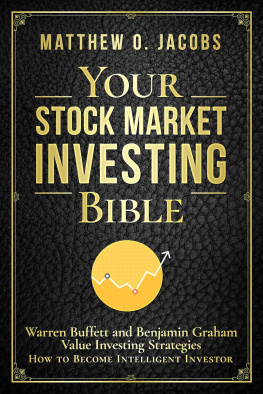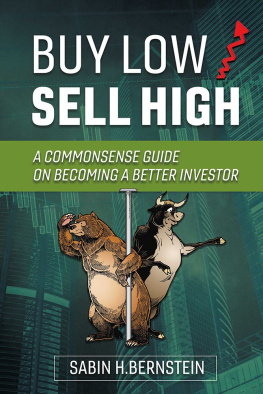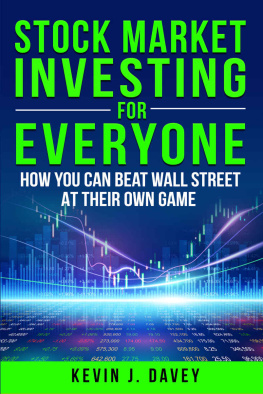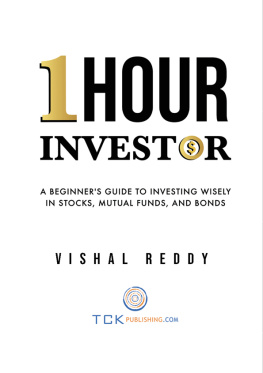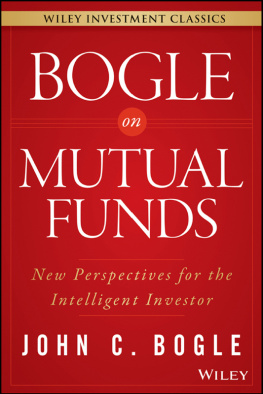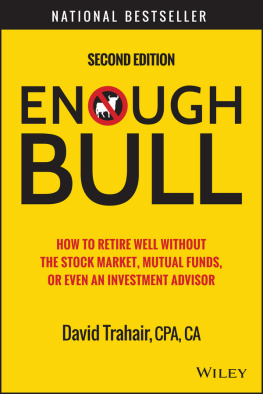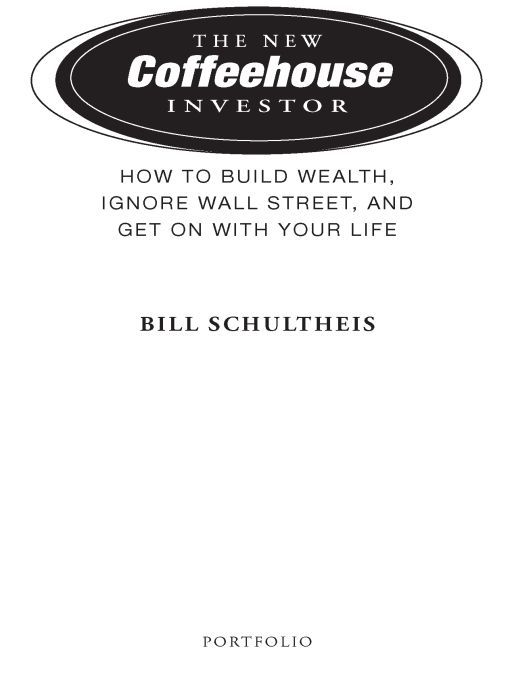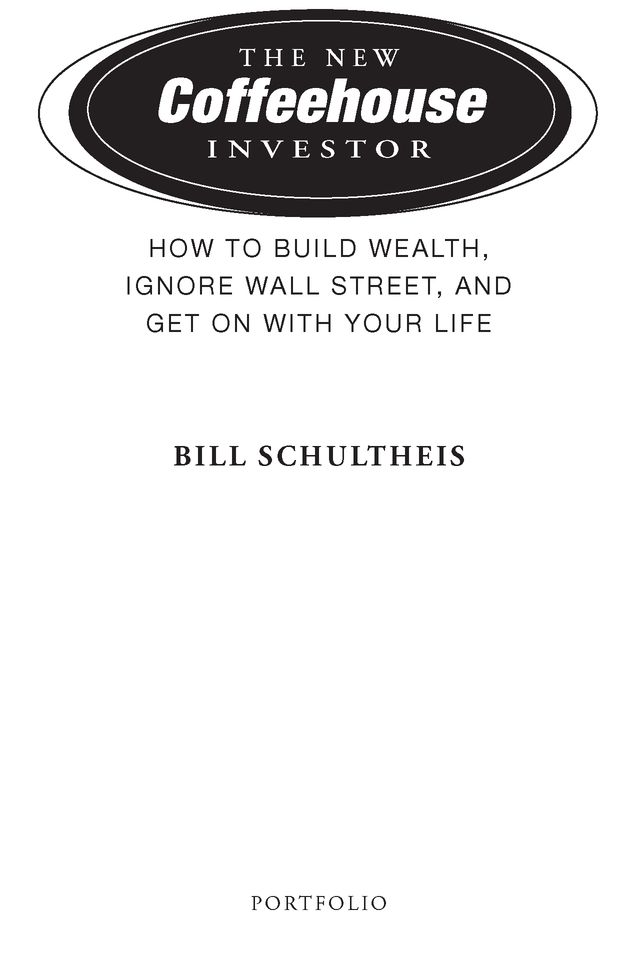Table of Contents
To all the Coffeehouse Investors,
Vanguard Diehards,
and everyone else who has taken a moment
to share this investment philosophy with others
PREFACE
ON MARCH 8, 2000, TWO DAYS BEFORE THE NASDAQ STOCK index topped out at 5,048, I presented a Coffeehouse Investor seminar focusing on three simple principles that were introduced when this book was first published in 1998. These are lifelong principles that we all know to be true, principles that were probably shared with us long ago by a wise old friend.
1. Dont put all your eggs in one basket.
2. There is no such thing as a free lunch.
3. Save for a rainy day.
After the seminar, a middle-aged man named Bob approached me and admitted that he had connected with the three principles and needed to make some changes to his portfolio.
Bob had everything going for him. He revealed to me that he had just met the woman of his dreams and was preparing for a trip around the world. On top of that, he was set to retire and live happily ever after on a portfolio that had grown in value to over $1.6 million.
After meeting with Bob and reviewing his account, which consisted of something like twenty-five large-cap stocks and five mutual funds of the same flavor, we came to the conclusion that he didnt need to have much money at all invested in the stock market to maintain his lifestyle for the rest of his life.
After working with Bob to create a financial plan, I remember telling him, It is time to diversify.
Intellectually he knew he needed to make some changes in his life, like buying some bonds, but emotionally he couldnt do it. How did I know that? Because four months later he called me and confessed he hadnt done a thing and his portfolio had plummeted about $500,000.
Again we reviewed his financial plan, and again I responded, Bob, it isnt too late to diversify.
He nodded, but I knew he was thinking something different....
I own world-class companies.
My stocks and mutual funds will come back, just like last time.
My stockbroker is telling me to hang in there.
My stockbrokers analysts are telling him to hang in there.
Ill diversify when my portfolio gets back to $1.6 million.
Intellectually he knew he needed to make some changes, but emotionally he still couldnt do it. How did I know that? Because five months later he called me again and confessed he still hadnt done a thing and his portfolio had plunged another $400,000.
Again we reviewed his financial situation, and again I responded, Bob, it still isnt too late to diversify.
He nodded again, but I knew he was thinking something different....
I own world-class companies.
My stocks and mutual funds will come back, just like last time.
My stockbroker is telling me to hang in there.
My stockbrokers analysts are telling him to hang in there.
Ill diversify when my portfolio gets back to $1 million.
The tragedy of this story is that instead of taking that trip around the world, Bob decided to go back to work.
Not because he wanted to.
Because he had to.
After thirteen years of working with retail and institutional accounts for a major Wall Street firm in Seattle, Washington, I decided to take a break. After stepping away from a career in the financial industry, it became obvious that an investment story very different from Wall Streets traditional story needed to be told. That is how this book came about.
Now, ten years later, after reflecting on the profound impact The Coffeehouse Investor has had on peoples lives during a period of immense global turmoil and market volatility, it is time to reestablish these lifelong principles as fundamental to building wealth, ignoring Wall Street, and getting on with your life.
By choosing to read this book, you are taking a significant step toward creating a successful portfolio, which, for many of us, means building a nest egg to see us through our retirement years. No one said it was going to be easy; and right now there seem to be a lot more questions than answers about this thing called retirement, which means that this new chapter in your life can be full of predicaments or possibilities.
It all depends on you.
By choosing to read this book, you are also taking a significant step toward accepting personal responsibility for your retirement. Thats good, because if we listen closely, corporations have been telling us for quite some time that we need to be more responsible for our retirement. On top of that, the government is starting to tell us that we need to be more responsible for our retirement.
The time to start is now.
Maybe one of the reasons this retirement thing is so daunting is because we are accepting responsibility for something completely opposite its definition....
retire (r-tr), v. to withdraw or go away to a place of privacy, shelter, or seclusion.
I dont know about you, but that is not how I plan on spending my retirement. I want to live an abundant life every day for the rest of my life and have the financial resources to do it, and Im sure you feel the same way.
The concept of retirement is still so new to our society, because, for the most part, we are stepping away from our careers earlier and living longer. For example, in 1940 the average age of retirement was seventy, but the average life expectancy was only sixty-two. Today the average age for retirement is sixty-two, and the average life expectancy is seventy-seven!
Even though we are retiring earlier and living longer, our retirements shouldnt be about withdrawing or pulling away. These years should be about reaching out and expanding our possibilities of how we work and play, at a pace that reflects the energy level we have for both.
In visiting and working with countless investors who have properly prepared for retirement, I am inspired by the zeal that these people bring to this new chapter of their lives. It is a time for new friends, new discoveries, new passions, and new possibilities.
But I have also had too many discussions with too many people who carry with them a nervousness that they are going to outlive their money, and this nagging anxiety that they cant seem to shake saps the passion for life right out of their bones and right out of their lives. That is a tragedy because the goal, it seems to me, is to have our financial resources accentuate, not detract from, our capacity to live a full life for the rest of our lives.
Before we begin the journey of moving from predicaments to possibilities, lets take a look at how we got into this predicament in the first place.
In my opinion, the predicament took hold on August 16, 1982. I remember that day very well; in fact, I remember it as if it were yesterday. I was spending my summer vacation driving a wheat combine on the steep hillsides of our family farm.


